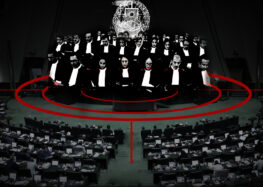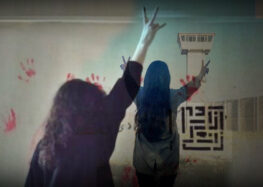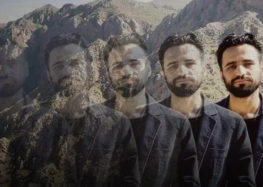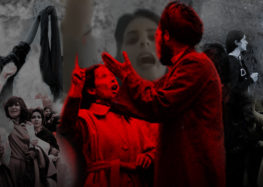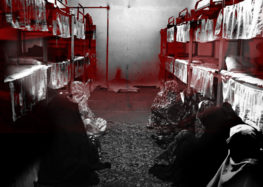Former Presidential Candidate Karroubi Did Not Receive Saudi Money, Son Says
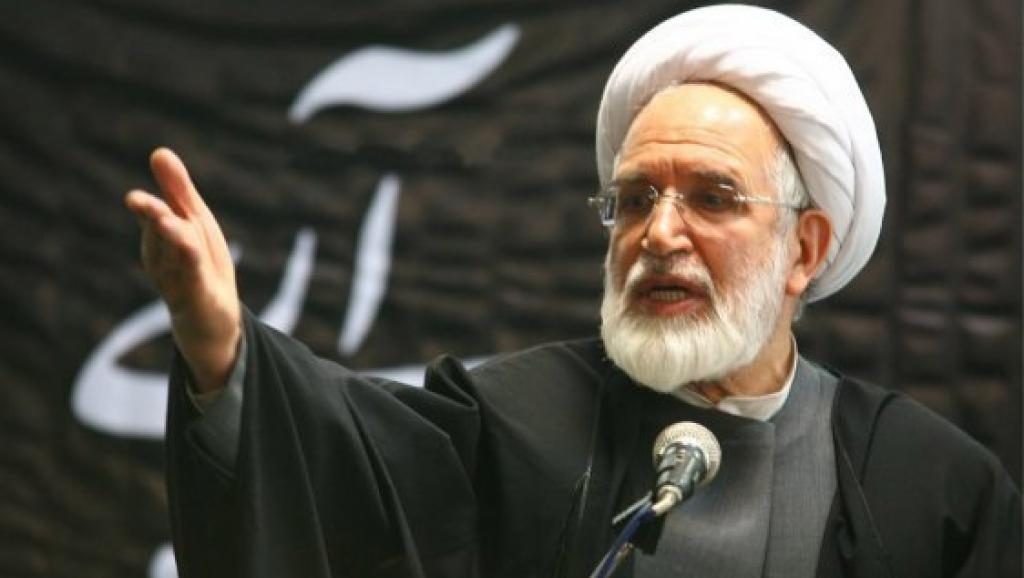
False Claims Meant to Divert Attention from “Shame” of Eight Years of House Arrest Without Trial
A son of the 2009 presidential candidate Mehdi Karroubi has denied accusations by a senior Iranian judiciary official that during an ill-fated bid for president his father accepted campaign funds from Arab countries opposed to the Islamic Republic of Iran.
Mehdi Karroubi ran for president in 2009, along with fellow candidate Mir Hossein Mousavi. The results of those elections, which brought Mahmoud Ahmadinejad a second term, were widely disputed and followed by massive peaceful protests in Iran that came to be known as the Green Movement. The protests were violently crushed by the state in 2009.
Karroubi, Mousavi and Mousavi’s wife Zahra Rahnavard were placed under house arrest in February 2011, where they have remained for the last eight years, without charge or trial.
On December 30, 2018, Judiciary Spokesman Gholam-Hossein Mohseni Ejei claimed that in the 2009 election, Karroubi’s presidential campaign received financial backing from Saudi Arabia and other conservative Arab governments.
“I had information that his campaign was getting assistance even from Saudi Arabia and some countries in the Persian Gulf. There were signs pointing to it from the intelligence community as well as information from some of our own colleagues (in the judiciary),” Ejei said in an interview with Fars, the semi-official news agency affiliated with Iran’s Islamic Revolutionary Guards Corp (IRGC).
“At one point, I told [Mehdi Karroubi] that one of the women who went to his campaign headquarters was Iranian but she lived abroad and still had foreign ties. I asked him, ‘Aren’t you concerned that she might have been sent to carry out a mission inside your organization?’”
The judiciary official did not reveal the name of the alleged woman.
In response to allegations of financial backing from abroad, Karroubi’s son, Mohammad Taghi Karroubi, told the Center for Human Rights in Iran (CHRI) that the judiciary was making false claims to divert attention from the shame of keeping Karroubi, Mousavi and Rahnavard under house arrest for nearly eight years without a trial.
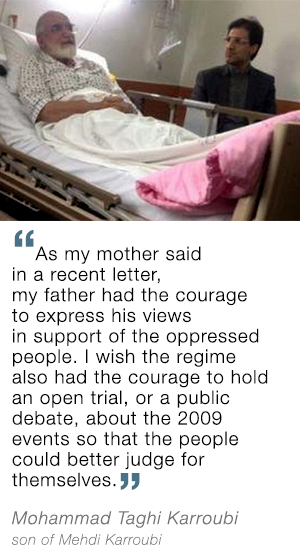 “Allegations of financial assistance to the Karroubi, or Mousavi, presidential campaigns are absolutely false, just like all the other allegations for which no evidence has been presented,” Mohammad Taghi said in an interview on January 5, 2019.
“Allegations of financial assistance to the Karroubi, or Mousavi, presidential campaigns are absolutely false, just like all the other allegations for which no evidence has been presented,” Mohammad Taghi said in an interview on January 5, 2019.
“During the past eight years … my father’s private and political affairs have been thoroughly investigated by the security and judicial authorities. In 2009, the Karroubi presidential campaign was the smallest one with the least amount of expenses and it did not receive any support before or after the elections from any country or international organization. That independence was the strength of the Green Movement during the 2009 protests.”
The opposition leader’s son continued: “Almost a decade has gone by since the incidents in 2009 and throughout this time the ruling establishment has tried to change the facts and fool the public. The authorities are always trying to deceive the people by smearing individuals without any proof. They are not prepared to back their claims with solid evidence in an open trial.”
Mohammad Taghi added: “As my mother said in a recent letter, my father had the courage to express his views in support of the oppressed people. I wish the regime also had the courage to hold an open trial, or a public debate, about the 2009 events so that the people could better judge for themselves.”
In an open letter published in the opposition news site, Kalame, on January 1, 2019, Karroubi’s wife, Fatemeh Karroubi, called on the authorities to prove the latest allegations based on any evidence unearthed during massive searches.
“The judicial and security authorities, who on several occasions dug into our private and political lives during raids on our home and offices, know the truth more than anyone,” she wrote.
Fatemeh Karroubi also took offense to Ejei’s assertion that her husband’s punishment was light compared to the gravity of his role in leading the upheavals, along with Mousavi and Rahnavard, against the outcome of the controversial 2009 election.
“In his interview, Mr. Ejei described the eight years of extra-judicial and arbitrary house arrests as minimum punishment and again suggested that [the opposition leaders] deserved the death penalty… Karroubi will does not shake in the face of such ill winds,” she wrote.
Speaking to CHRI, Mohammad Taghi said his 81-year-old father is in good health.
“The house arrest has generally loosened up and there are no restrictions on the comings and goings of the children and relatives. To some extent they are living a normal life but they are still not allowed to have political contacts or communication with the people and this is unlawful. These unlawful controls on their lives that have been imposed for so many years must entirely end.”
He added: “We are hopeful that in the near future the authorities will put a complete end to the house arrests and those who have been denied the right to respond will be allowed to freely speak to the people. But if the intention is to continue the house arrests, then the authorities should give them the opportunity to appear in an open court so that at least they could to respond to the accusations.”


